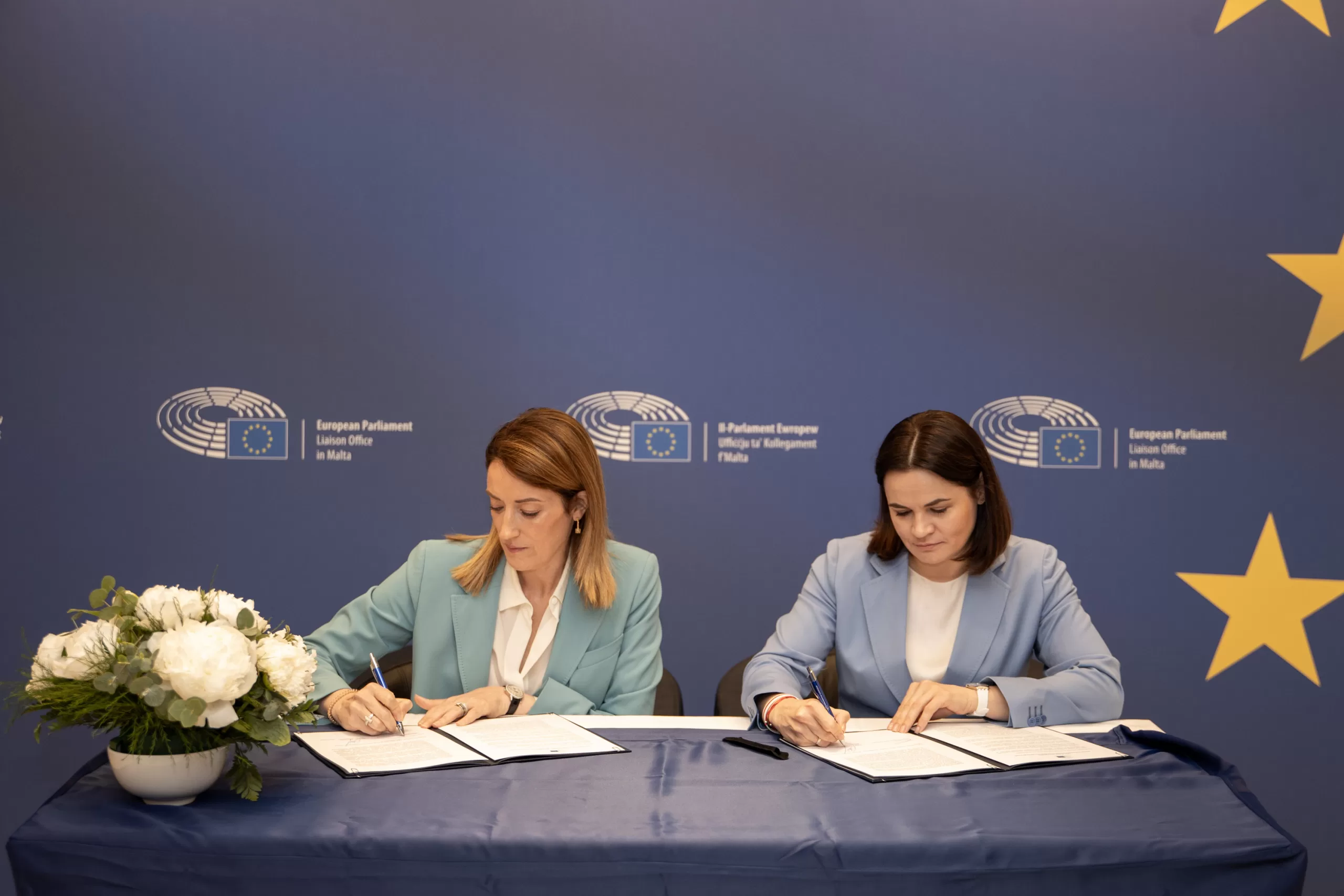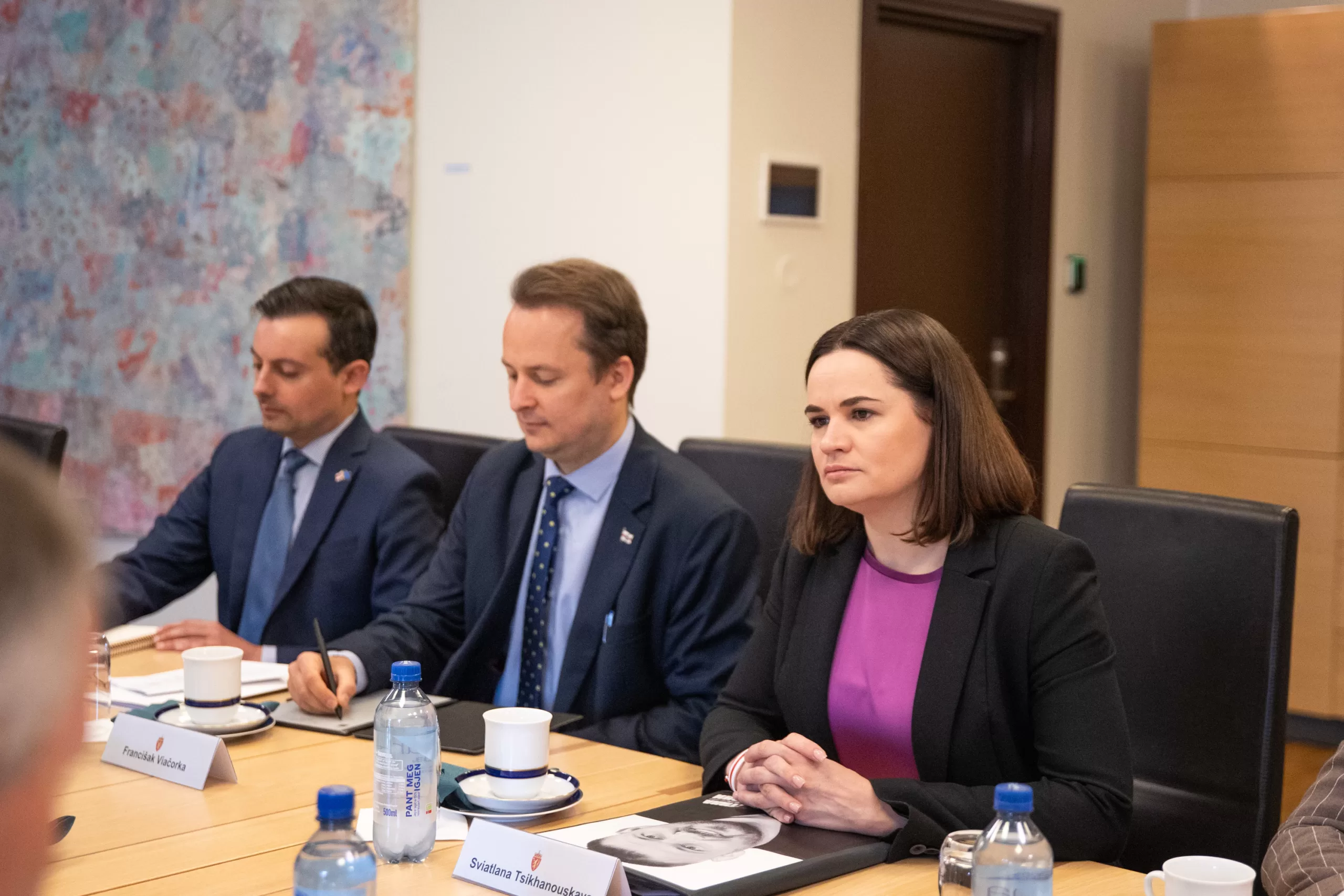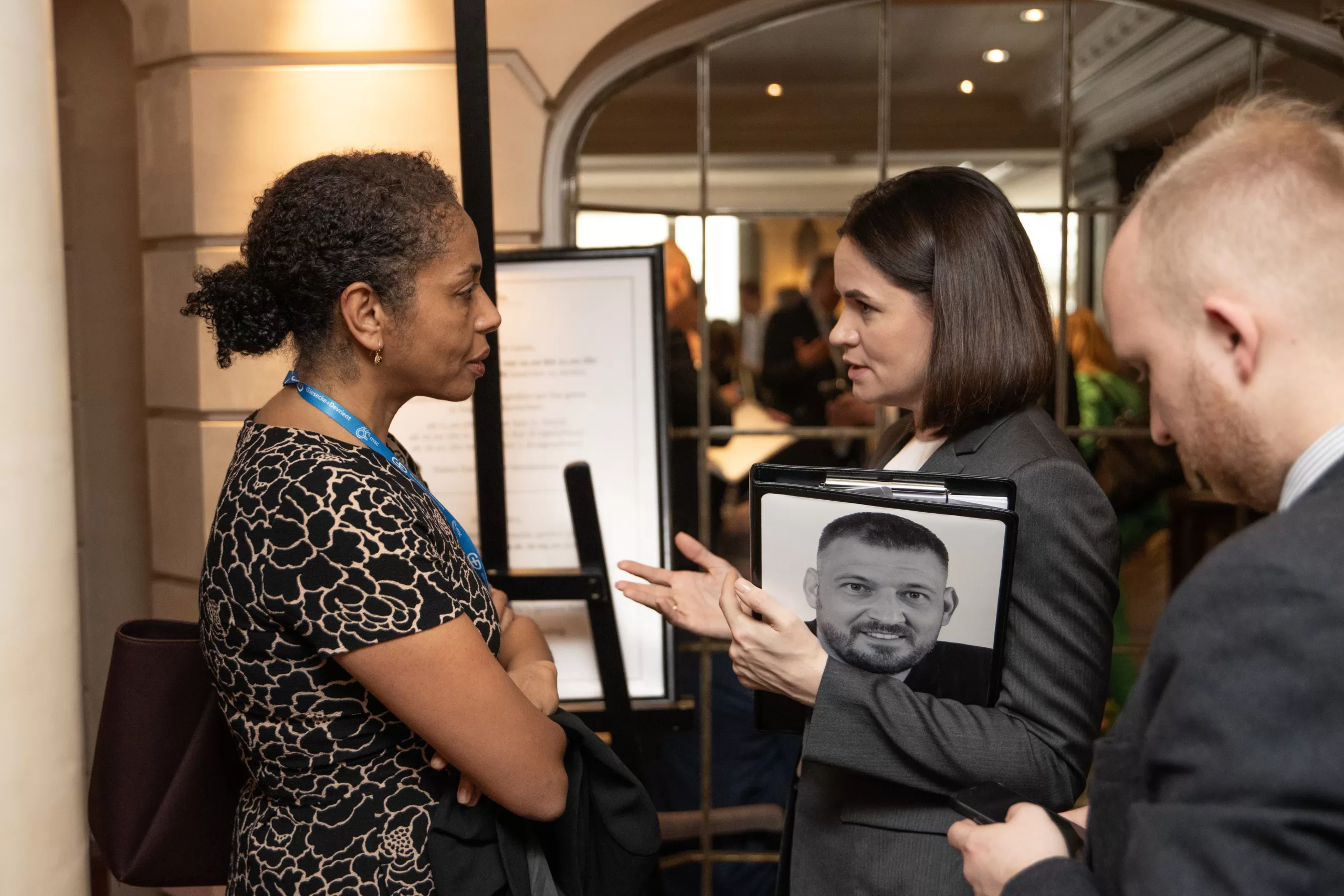August 9 marks the fifth anniversary of the mass protests in Belarus. The key outcomes of the past five years will be summed up during the New Belarus Conference in Warsaw. Over the past five years, Sviatlana Tsikhanouskaya, her Office, and the United Transitional Cabinet have established diplomatic ties, advocated for Belarusians, led global solidarity campaigns for political prisoners, and kept Belarus in the spotlight of international attention.
– Diplomatic and political contacts have been established with 48 countries, including Argentina, Chile, Costa Rica, Moldova, and Armenia. These ties help defend Belarus’s interests and support Belarusians in exile.
– More than 30 countries have refused to recognize the 2020, 2024, and 2025 sham elections in Belarus, with many declining to send ambassadors to Minsk as a sign of non-recognition of Lukashenka.
– 19 countries have appointed special envoys for Belarus – ambassadors or special advisors who work with the democratic forces and assist with practical requests from Belarusians.
– Official relations have been formalized with foreign governments and international organizations. The Strategic Dialogue with the United States was launched, as well as Strategic Consultations with the United Kingdom and Canada, the Consultative Group with the European Union, and the Contact Group with the Council of Europe.
– Agreements have been signed with the European Parliament (Roberta Metsola), the European Economic and Social Committee, and the Community of Democracies.
– For the first time, Belarus was represented at major political forums, including the Munich Security Conference, the World Economic Forum in Davos, the Delphi Economic Forum, Security Forums in Bled, Warsaw, Halifax, and dozens of others.
– For the first time, Belarus was represented at the Summits of the European Political Community (three times – in Spain, the United Kingdom, and Albania), the Council of Europe, NATO (Vilnius, Washington, and The Hague), the G7 in Italy, the Conference of Speakers of EU Parliaments (Mallorca), the UN General Assembly, the Three Seas Initiative (Warsaw), and others.
– The democratic forces of Belarus have received diplomatic accreditation in Lithuania and de facto recognition in many countries around the world.
– Missions of the democratic forces have been launched in Tallinn, Brussels, Prague, and Kyiv, while the People’s Embassies have representatives in 20 countries worldwide.
– Contact has been established with the USA and the Office of the UN High Commissioner for Human Rights; efforts have been made to release political prisoners, resulting in some being freed, including Siarhei Tsikhanouski.
– Belarusians gained their spaces and places in various European cities, including Belarusian Houses in Vilnius and Warsaw, a shelter in Italy, a memorial sign to Francysk Skaryna in Central Prague, and streets and squares of Free Belarus in Warsaw and Białystok.
– The International Humanitarian Fund has been established, with more than 2 million euros raised. The money went to victims of repression in the form of financing for relocation and rehabilitation. Norway, Sweden, Denmark, Iceland, Estonia, Latvia, Luxembourg, Spain, and Finland have joined the fund.
– The International Accountability Platform for Belarus has been launched with the support of 19 OSCE countries, helping Belarusian human rights defenders document human rights violations and support repressed individuals.
– Financial support has been mobilized for Belarusian independent media, human rights defenders, civil society, repressed persons, and initiatives in education and mobility. For the first time, the EU disbursed several million euros to support Belarusian culture as a separate track.
– Civil society representatives have participated in Needs Assessments and independently developed strategies for foreign aid to Belarus.
– 12 high-level international conferences have been held (including Austria, Sweden, Finland, Estonia, Luxembourg, Poland, Lithuania, and others), as well as over 200 events, exhibitions, and concerts in partnership with foreign governments and parliaments, as well as diaspora and civil organizations.

– For the first time, the Belarusian delegation was represented in the Parliamentary Assembly and the Congress of Local and Regional Authorities of the Council of Europe. The Coordination Council has participated in sessions, debates, and sometimes proposes amendments to documents.
– The Moscow and Vienna OSCE mechanisms have been invoked to investigate human rights violations in Belarus. The UN Human Rights Council, the European Parliament, and the Parliamentary Assembly of the Council of Europe have adopted resolutions.
– Three Arria-formula UN Security Council hearings have been held to discuss repression and freedom of speech in Belarus.
– Under the aegis of PACE, the Luxembourg Solutions have been developed and adopted – a comprehensive document containing recommendations to resolve issues faced by Belarusians in exile, including visas, documents, and legalization.
– For the first time, the Belarus Days took place in Brussels in cooperation with the European Commission and the European Council, featuring a week of political, analytical, and cultural events.
– Groups “For a Democratic Belarus” have been formed in the parliaments of 26 countries, including caucuses in the US Congress. The groups have met twice as an alliance in Berlin and Rome, with the next meeting planned in Paris. The Rome Declaration has been signed to support democratic changes and the European alternative for Belarus.
– 30 countries have joined the Belarus Friendship Group in the OSCE, regularly raising the issue of Belarusian political prisoners, the need for political reforms, and free elections. As of today, the group includes Belgium, Bulgaria, Canada, Croatia, Czechia, Cyprus, Denmark, Estonia, Finland, France, Greece, Iceland, Ireland, Italy, Latvia, Lithuania, Luxembourg, Montenegro, Netherlands, Norway, Poland, Portugal, Romania, Slovenia, Spain, Sweden, Ukraine, United Kingdom, and Germany.

– Mandates of the UN Special Rapporteur on Belarus and the Group of Independent Experts on Belarus under the UN Human Rights Council have been established and expanded, tasked with documenting regime crimes, raising Belarus issues at the UN, and seeking justice for victims.
– Lithuania has referred the Lukashenka regime’s crimes to the International Criminal Court and instituted proceedings in the International Court of Justice, with active support from the National Anti-Crisis Management and the democratic forces.
– The European Union has outlined the Comprehensive Economic Support Plan for Belarus worth 3 billion euros, expected to enter into force in the case of political change in the country. Belarus will receive aid for reforms. This is an important signal to Belarusians in the event of political transformation.
– A new draft Belarus Democracy, Human Rights, and Sovereignty Act has been submitted to the US Congress, declaring support for independent media, a course toward independence and democratic change, and pressure on the Lukashenko regime to release political prisoners.
– The Sviatlana Tsikhanouskaya Scholarship Program has been launched at MCI Innsbruck, Austria. Aside from this program, several thousand students have been able to continue their studies at foreign universities with European and American assistance.
– For the first time, representatives of the democratic forces, rather than the regime, officially participated in ceremonies honoring Holocaust victims, the victory in World War II, and large-scale ceremonies such as the funeral of the Pope.
– Contacts with leadership of tech companies have been established, including Google (Alphabet), Facebook (Meta), TikTok, Signal, OpenAI, and Microsoft. These contacts have helped address practical issues like blocking or advertising, as well as secure Belarusian NGO’s access to free tools. For example, as a result of cooperation, Signal now has a Belarusian-language version.

– Many countries have officially started using the name Belarus instead of “White Russia” as a sign of solidarity with Belarus. The white-red-white flag has often appeared at meetings instead of the red-green one used by the regime.
These are shared achievements of the democratic forces, the Belarusian diaspora, and civil society. This political capital is crucial now and will continue to serve us in the future. Thanks to this work, the Belarusian issue remains on the international agenda. Belarusians are clearly distinguished from the regime, and Belarus is distinguished from Russia. The issue of political prisoners is voiced on international platforms, and allied states make efforts for their release.
This work has also resulted in practical steps that improve the lives of Belarusians. We have helped solve urgent problems faced by Belarusians in exile, including issues with legal stay, legal documents, and possible visa bans. Despite the difficult situation, some countries have even expanded visa issuance, with, for example, Germany issuing twice as many visas as in 2019, and Italy 20% more. In many countries, Belarusians are no longer required to return to their homeland to renew legal documents. Lithuania has been granting some Belarusians three-year residence permits, while more than 10 EU countries have been issuing alien passports. This is practical help for Belarusians in exile.
We have mobilized financial assistance for journalists, creators, and the repressed, and achieved effective sanctions against regime enablers. Through advocacy and cooperation with governments, we have managed to save specific individuals. A vivid example is the release of Andrei Hniot from prison in Serbia when he faced extradition to Belarus.
Since the start of Russia’s full-scale invasion of Ukraine, we have defended the honor of Belarusians on the international stage and clearly supported Ukraine. In partnership with the German Ministry of Foreign Affairs, the democratic forces of Belarus have delivered a mobile hospital and vehicles to Ukraine. With the Mayor of Vilnius, we have organized humanitarian aid deliveries, and with the authorities of Flanders, support for Belarusian volunteers.
The democratic forces of Belarus are grateful to the governments, parliaments, and nations that support Belarus on its path to freedom.







